Compassion Focused Therapy, shame and anxiety (Guest blog)
by Rebecca Stambridge
A good friend has invited you to an important birthday party but the day before you realise you have forgotten to book the time off work. You know they’ll be upset and you feel guilty but call and offer to take them for a special meal. The call was hard but everything seems resolved.
On the other hand, perhaps you feel so bad about this you cannot face calling. You beat yourself up for letting them down. You lie awake worrying and then the morning of the big event send a text which you later feel worse about. When they call, you don’t answer, fearing they will have a go at you. For days you feel anxious, wondering what they, and everyone else at the party, are saying about you. This response can be better described as shame and could impact the friendship permanently.
Shame and guilt are often confused but psychologically are very different. Although excessive guilt is not helpful, it is also considered useful and helps us maintain relationships. Shame on the other hand means a nagging sense of being unworthy, unlovable or defected. High levels of shame can trigger symptoms of anxiety, but why?
The answer lies in a combination of evolution and neuro psychology which the founder of Compassion Focused Therapy, Professor Paul Gilbert, has drawn upon to develop effective evidence based interventions.
The starting point for CFT, like other psychological approaches, is that humans have inherited old, powerful brains from early man. We may think we’re advanced modern humans, but how we think, feel and behave is largely based on the survival instincts we’ve always had. For example, In prehistoric times when faced with threats to life, such as a Sabre Tooth Tiger, our heart would beat faster, our muscles tense and our brain would produce “better safe than sorry thoughts”. I.e. what’s that rustling in the bushes…it might be a tiger….we better run!”. This is the “Fight and Flight” response which CFT calls the “Threat” system.
However, CFTs focus is mainly on social threats we have evolved with because in the past we were more dependent on others to survive due to needing to cooperate for resources and protection. Therefore, any behaviour deemed unacceptable to the group might have led to being ostracized which could result in a serious threat to life! This means we are built to care what others think and feel safe when viewed well in the eyes of others. If we feel rejected this activates the threat system because it’s interpreted by the old brain as a risk to our survival. Taking the phrase “dying of shame” to a whole new level!
Because of the tricky brains we have evolved with, everybody to some degree cares what people think and will feel anxious in the face of rejection and criticism. However, those with an over active threat system may experience higher levels of shame and therefore more anxiety symptoms. Furthemore, such a person is more likely to perceive the actions of those around them as rejecting and their own behaviour as shameful. Hence a vicious cycle occurs.
Common anxiety issues in relation to high levels of shame include social anxiety, perfectionism (i.e fear of making mistakes) or people pleasing (i.d fear of letting people down). Persistent but low level shame can hold you back in life due to eroding your confidence. Higher levels of shame can trigger panic attacks or deeply distressing feelings of self loathing when problems occur in interpersonal relationships.
The good news is our brains have an inbuilt “Soothing System” which balances the “Threat” one and CFT works at helping to activate this to reduce anxiety and shame.
The role of the Soothing Systems is to help us rest and digest as well as give and receive love which are also essential for our survival. When activated we feel calm, content and safe. We care less what people think and are more accepting of ourselves. Like any other muscle in the body it can be built up with regular exercise.
CFT interventions which are designed to activate the soothing system and reduce shame based anxiety include:
- Practicing mindfulness in order to bring attention to being in the “threat system” and take a step back from shame based thoughts and feelings.
- Soothing, relaxing breathing to activate the “Soothing System”.
- Using specific imagery such as a “Compassionate Self” or “Compassionate Other” to develop alternative responses to shame. This includes not blaming yourself for your response but also finding ways to be brave and helpful to yourself in the face of difficult situations.
Rebecca Stambridge is an integrative counsellor and mindfulness teacher. She uses compassion based approaches with clients both 1-1 and in groups. She has a practice in Glossop but also online.
CFT is available through Anxiety UK face to face, over the telephone or via webcam. Each session will usually last around 50-60 minutes and will typically be held on a weekly basis. More details here https://www.anxietyuk.org.uk/get-help/compassion-focused-therapy/
The views expressed by the contributor are not necessarily those of Anxiety UK, nor can we guarantee the accuracy of the information provided. If you would like to write a blog for AUK please email [email protected] for more information.






